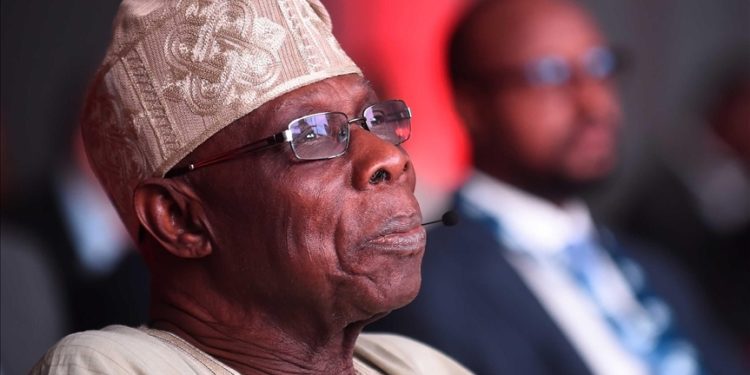Former President Olusegun Obasanjo has shed light on his interactions with the founders of Boko Haram in the North-East region, disclosing that poverty and unemployment were major factors that drove them into insurgency.
Speaking at the book launch of ‘Pillars of Statecraft: Nation-building in a changing world,’ authored by his daughter Dr Kofo Obasanjo-Blackshire in Lagos, Obasanjo expressed concern over the country’s 20 million out-of-school children, emphasizing the urgent need to address this issue to prevent the breeding of future Boko Haram members.
Obasanjo attributed the shift in government policies towards a more political focus rather than being people-centered to the tendency of seeking scapegoats for the nation’s problems.
During the early days of Boko Haram, Obasanjo expressed his desire to engage with the group and understand their demands. He met with their representatives, who expressed their aspiration for a better life. Obasanjo stressed that the pursuit of a better life was a legitimate desire and that Sharia Law, which they claimed to support, was already enshrined in Nigeria’s constitution.
The former president revealed that some members of the insurgency had received an education but were unable to find employment, leading to frustration. He posed questions, asking whether it was fair to blame them for seeking a livelihood and highlighting the importance of governance and leadership in addressing such issues.
Obasanjo urged Nigerians to confront their problems directly rather than shifting blame onto others. He drew attention to the staggering number of out-of-school children in the country and emphasized the need to value and invest in their future, as neglecting them would contribute to the rise of future Boko Haram activities. He called on leaders to take responsibility for tackling poverty, emphasizing that it was a conscious or unconscious choice made by those in power.
The former president’s remarks underscore the significance of addressing poverty, unemployment, education, and effective governance as crucial elements in countering the challenges facing Nigeria and preventing the emergence of future security threats.










